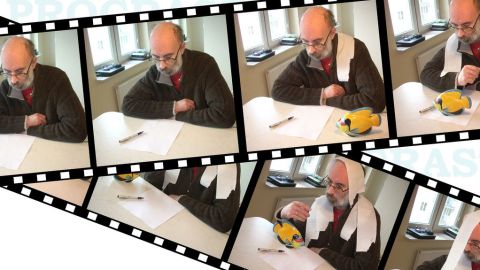Procrastination As The Secret to Achievement: Honoring This Year’s Ig-Nobel Winner John Perry

In 2011, the (in)famous IgNobel prizes were awarded to ten lucky winners. And I’d like to honor the winner in Literature (though the nature of the theory is such that it may as well have been Psychology, as is often the case), Dr. John Perry. The achievement: the theory of Structured Procrastination, whereby we become high achievers by working on something important—all the while procrastinating doing something even more important.
The theory behind Structured Procrastination
Procrastination consists of putting off what we know we need to accomplish. So many things, so little time…so we end by postponing everything and doing nothing. Or close to nothing—we don’t actually tend to sit passively by. Instead, we do things to put off what we should be doing, like arranging our closets (as long as we don’t actually need to arrange our closets), cleaning (as long as no cleaning actually needs doing), writing emails (as long as they don’t actually need writing), or whatever it is we do that we don’t actually have to be doing.
But notice something? All of the things on the above list could actually be productive, if only they needed to be done. Only then, of course, we’d be procrastinating doing them instead of actually doing them. Perry’s ingenious contribution to the procrastination dilemma hones in on this precise aspect: since when we procrastinate, we do something to avoid doing something else, why not make that something a worthwhile something?
Prioritize tasks—and don’t do the most important
Perry proposes the following strategy for the effective procrastinator. Create a list of tasks that you need to accomplish. Order them from most important to least important. Now, procrastinate doing something that is higher on the list by doing something lower on the list, instead of something random that doesn’t appear at all. That way, you’ll be doing something that needs doing while not doing something that’s even more pressing and important, thus satisfying your procrastinating tendencies. As a result, you’re still a procrastinator par excellence, avoiding important deadlines and responsibilities, but in addition, you’ve suddenly become productive as well.
The insight is as simple as it is profound. Of course, you do run into some problems when it comes to accomplishing those truly important things that are sitting right at the top of the list. Perry’s solution? A little exercise in self-deception. Create tasks that you could rationalize as even more important to put at the top, where the deadlines appear to be pressing when in fact, they are much more flexible. It may seem like a tough thing to do – but when it comes right down to it, fooling yourself is remarkably easy. We do it all the time.
I, for one, plan on following Perry’s advice immediately. He himself wrote up the theory to avoid grading papers. I am writing this blog post to avoid writing up something that is long overdue. I’m already well on my way.
The only possible hold-up? Procrastinating creating the procrastination-ordered list to begin with. Then, no amount of insightful prodding will help.
If you’d like to receive information on new posts and other updates, follow Maria on Twitter @mkonnikova
[Photo credit: Creative Commons, from gingerpig2000 flickr photostream]





